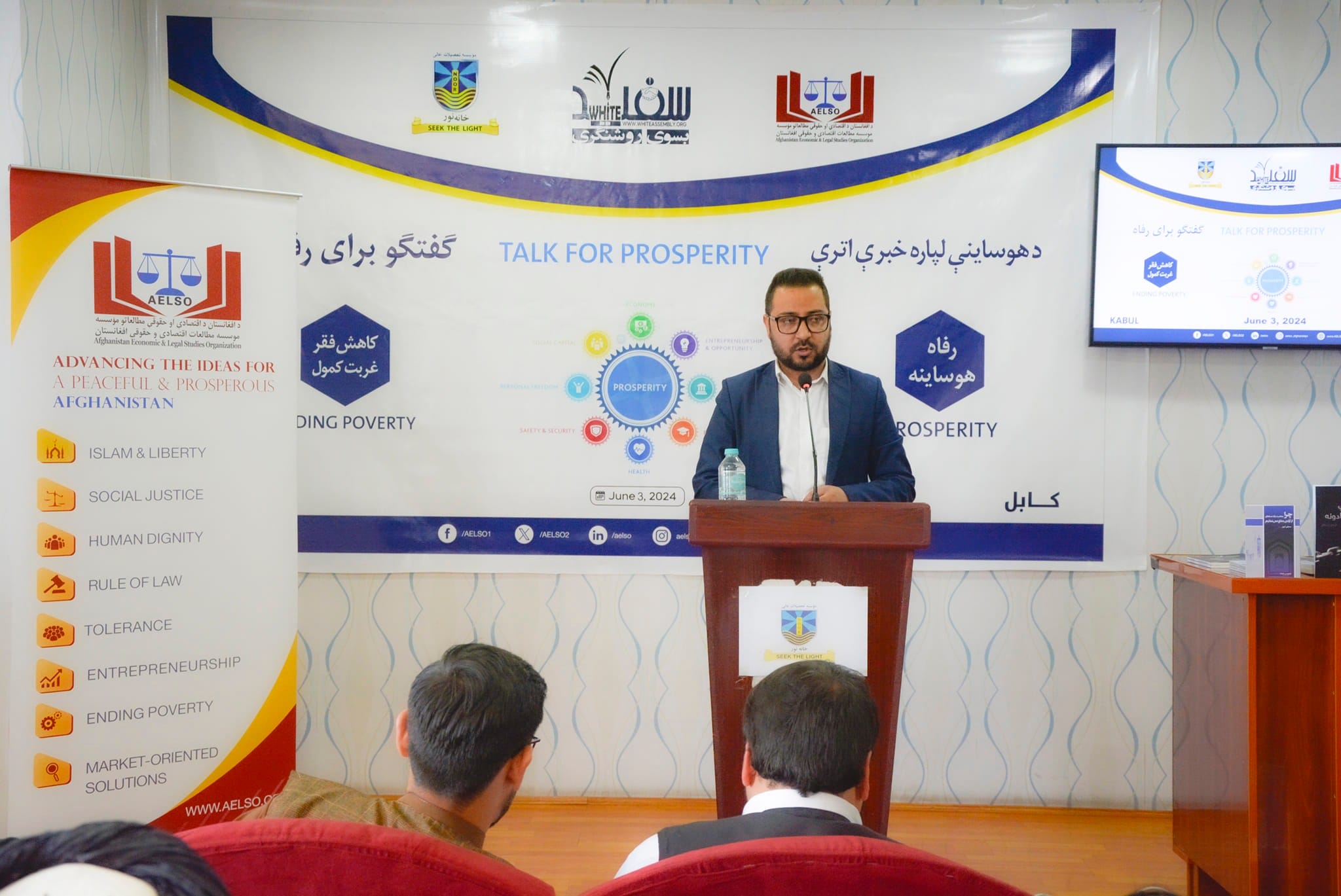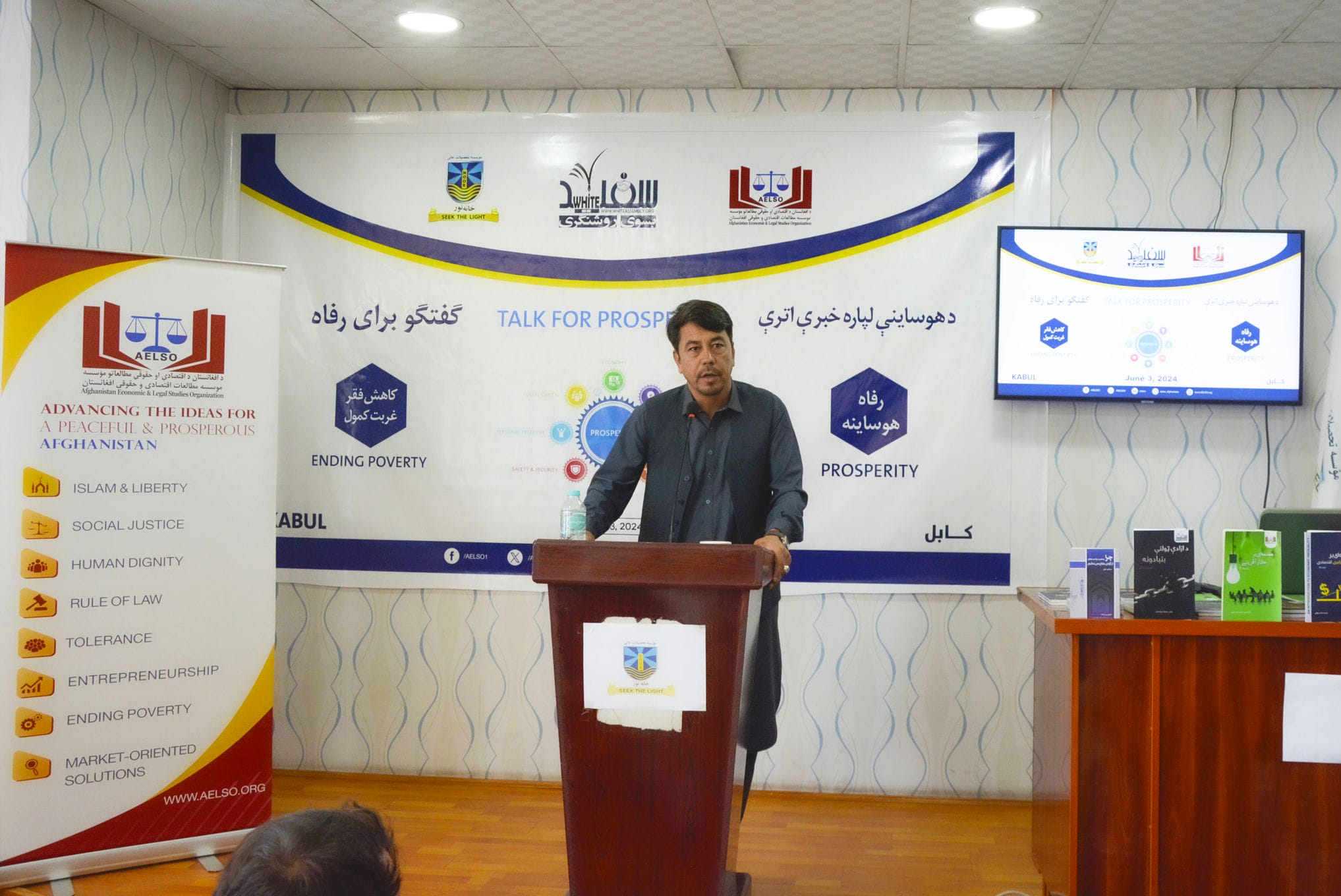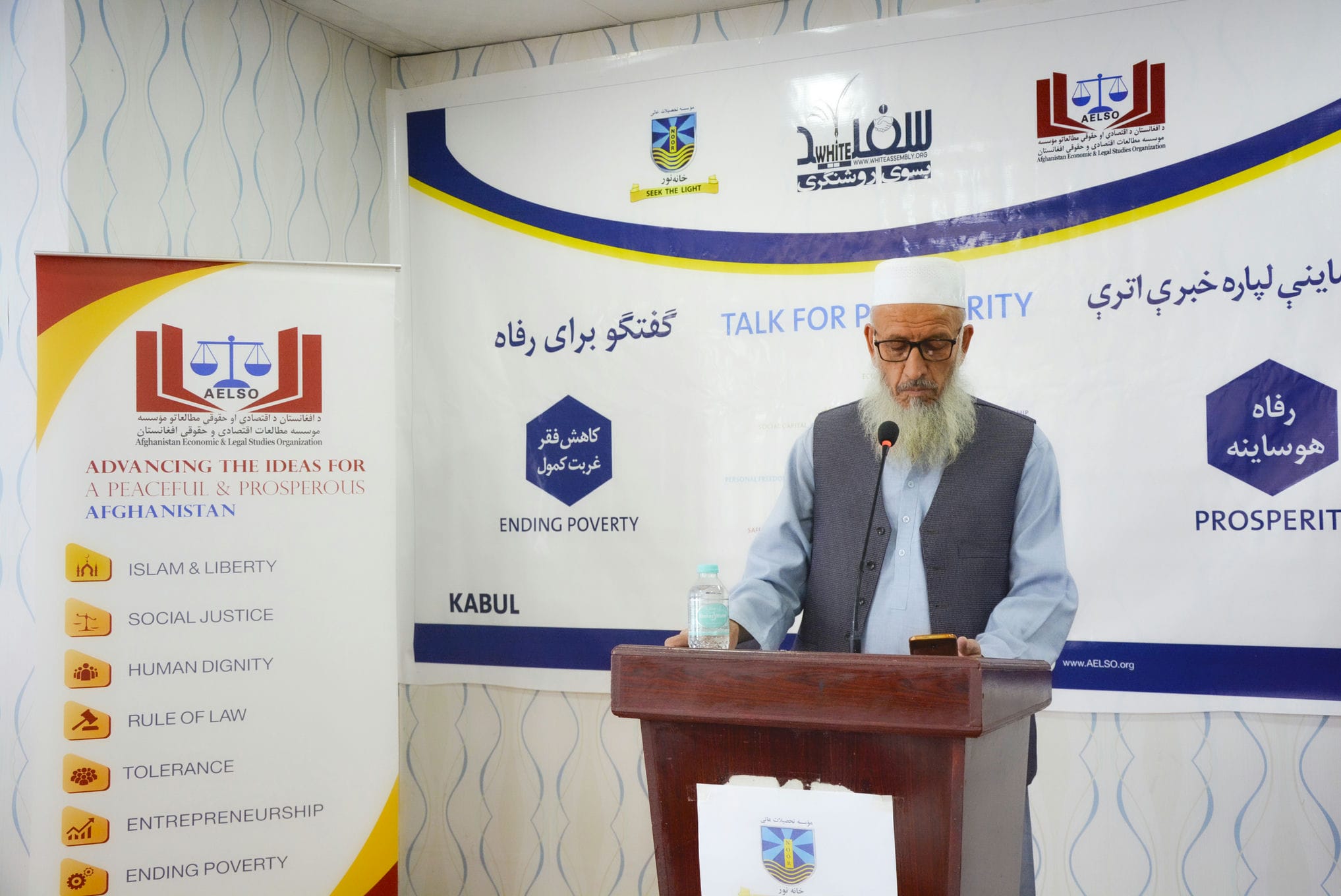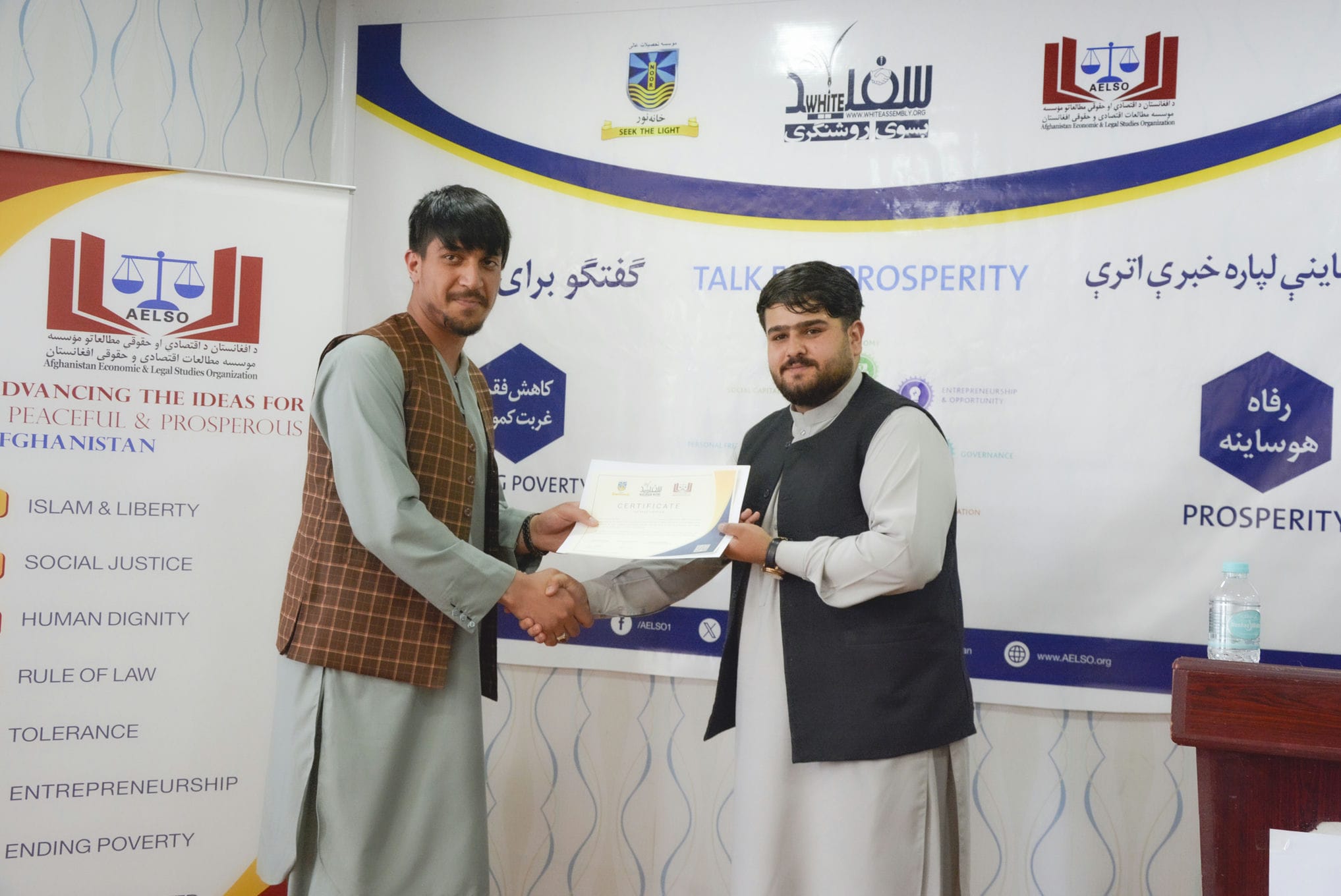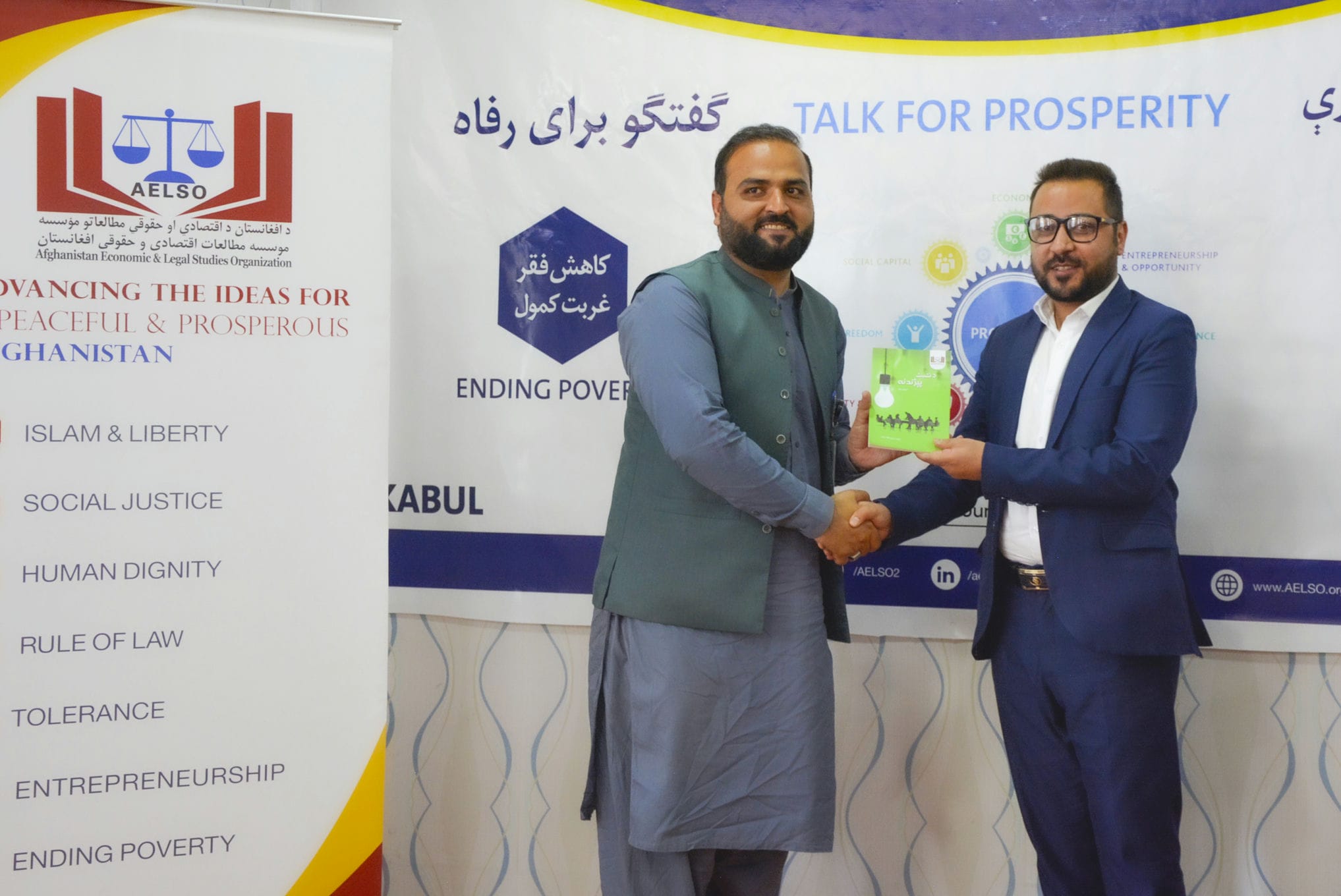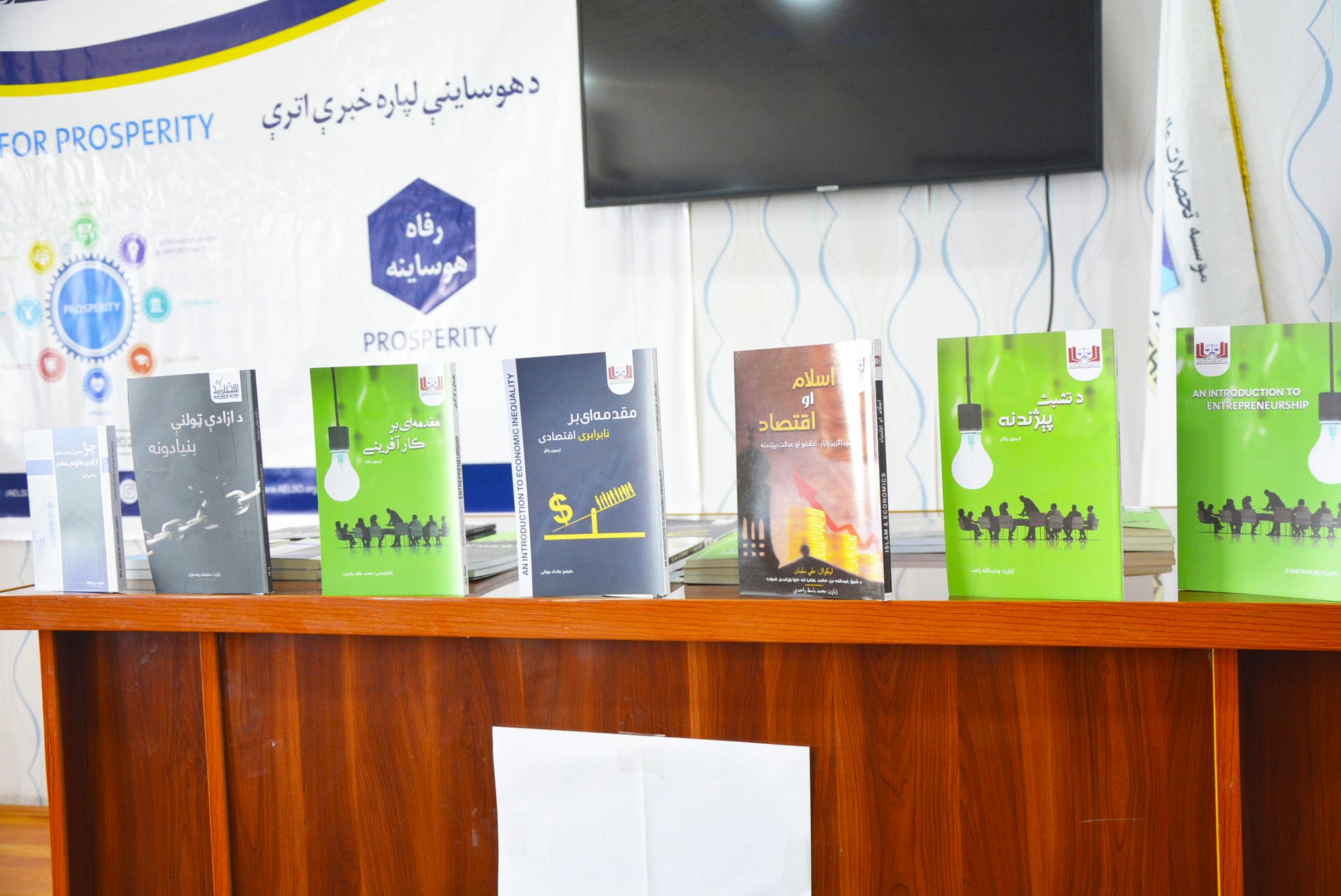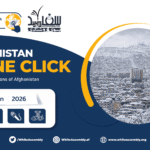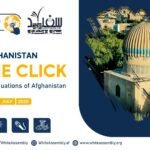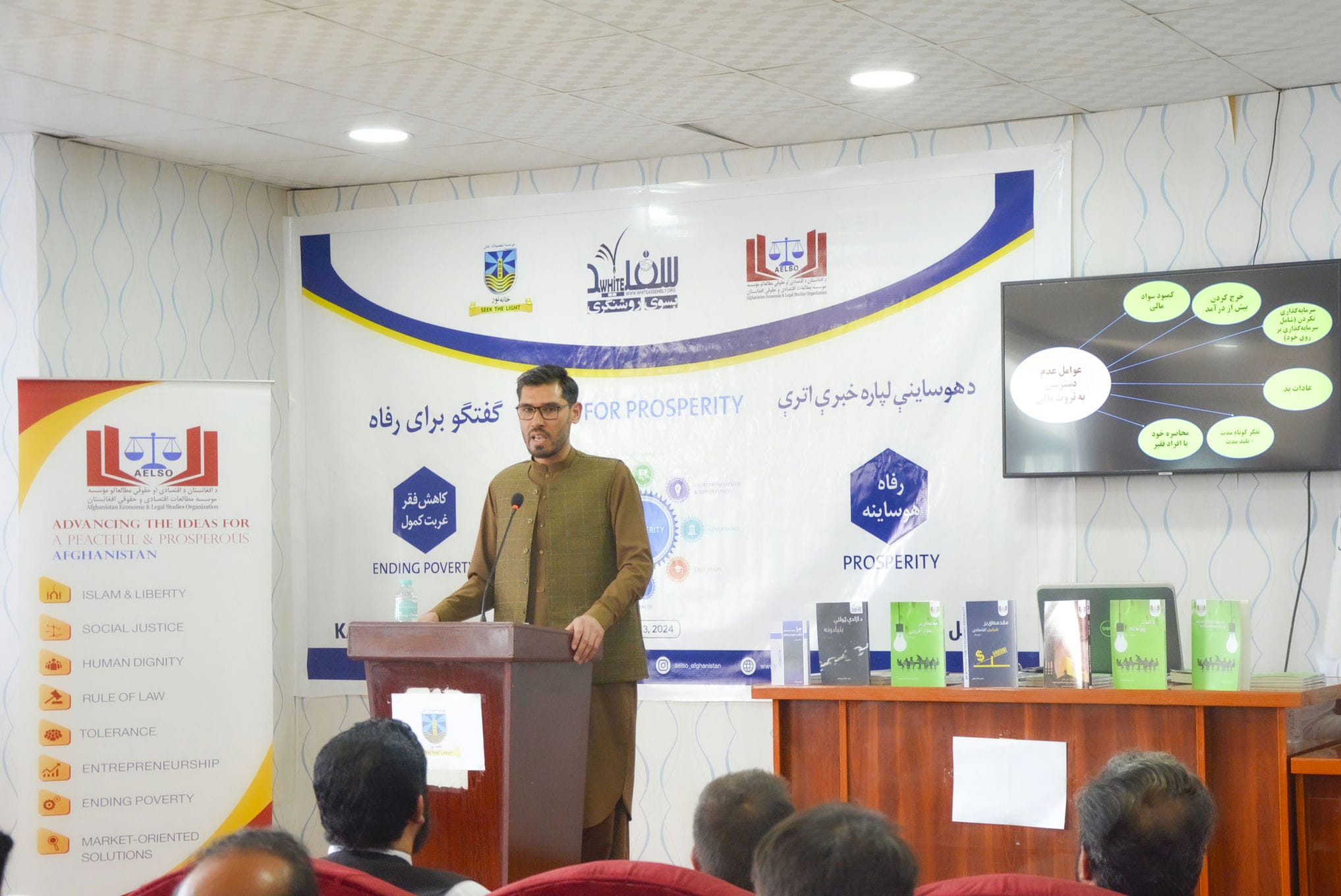
Talk for Prosperity: Paving the Way to a Prosperous Afghanistan
The “Talk for Prosperity” program, in partnership with Khana-e Noor University and other think tanks, was organized in Kabul with the primary theme of fostering prosperity and eradicating poverty in Afghanistan. The program aimed to discuss prosperity indicators, entrepreneurial perspectives, economic development initiatives, and strategies for ending poverty in the country.
The event brought together various stakeholders, including academics institutions leadership, entrepreneurs, policymakers, and investors, to engage in meaningful discussions on promoting prosperity and ending poverty. Participants exchanged views, shared experiences, and highlighted challenges and opportunities in Afghanistan’s market.
Key Discussion Points:
- Indicators and Strategies for Prosperity:
Discussions centered on identifying key indicators of prosperity and strategies for ending poverty and managing wealth in Afghanistan. Participants emphasized the importance of economic growth, job creation, access to education and healthcare, and infrastructure development in achieving prosperity. There was a consensus on the need for targeted interventions to address poverty through microfinance, skill development programs, and social safety nets.
- Role of Entrepreneurship:
The program highlighted the role of entrepreneurship in driving economic development and reducing poverty. Participants discussed various initiatives aimed at fostering entrepreneurship, including incubators, accelerators, and access to finance. There was a focus on promoting innovation, technology adoption, and market linkages to support the growth of small and medium-sized enterprises (SMEs).
- Types of Wealth and Wealth Management:
A significant portion of the discussions was dedicated to understanding different types of wealth—financial, human, social, and natural—and their management. Participants explored strategies for effective wealth management, emphasizing the need for financial literacy, investment in human capital, and sustainable use of natural resources. The importance of creating and maintaining social capital through strong community networks and support systems was also highlighted.
The “Talk for Prosperity” program provided a platform for stakeholders and youths to come together and discuss strategies for promoting prosperity and ending poverty in Afghanistan. The event underscored the importance of entrepreneurship, innovation, and collaboration in driving economic development and creating opportunities for all. Moving forward, there is a need for continued dialogue and concerted efforts to implement effective solutions that address the root causes of poverty and promote sustainable growth.
“We have learned from this program that we need to have a strong determination for entrepreneurship and take effective steps along the entrepreneurial path with risk-taking and the use of technology for prosperity in Afghanistan,” said Romal, a participant.
We would like to express our gratitude to Khana-e Noor University for their collaboration in organizing this event, as well as to all participants for their valuable contributions and insights. Special thanks to the keynote speakers for sharing their expertise and perspectives on the way forward for Afghanistan’s economic development.

